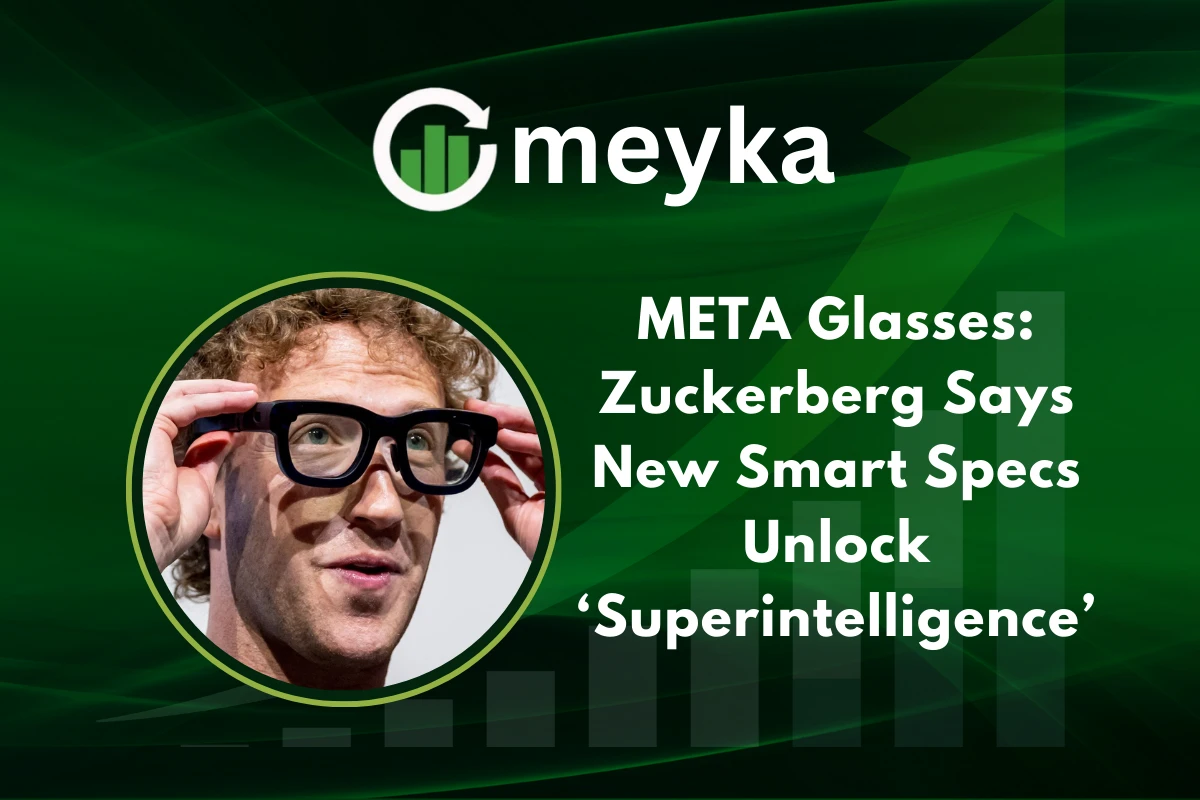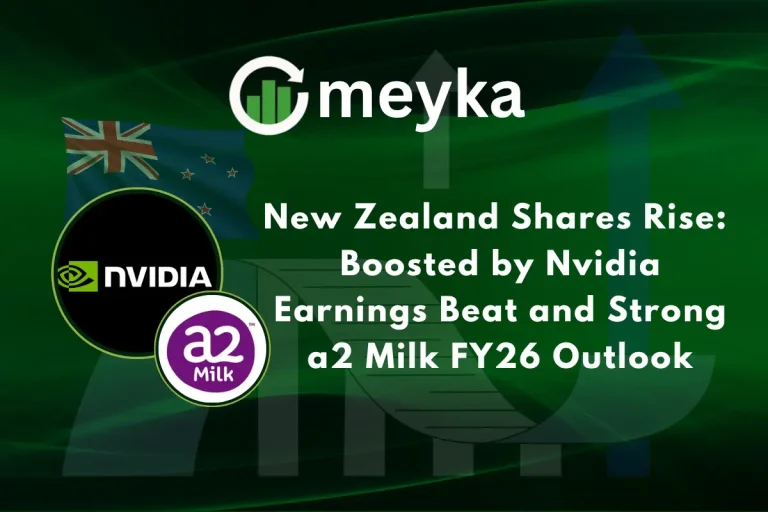META Glasses: Zuckerberg Says New Smart Specs Unlock ‘Superintelligence’
At Meta Connect 2025, Mark Zuckerberg walked on stage with a bold statement: the new META Glasses are not just another gadget, but a gateway to what he called “superintelligence.” The company claims these AI-powered smart specs will redefine how people see, hear, and interact with the world.
The announcement was one of the most talked-about moments of the event, drawing attention from tech analysts, social media users, and everyday consumers curious about what this next leap in wearable technology really means.
The Launch of META Glasses at Meta Connect 2025
Meta has been working on smart glasses for years, often in partnership with Ray-Ban. But this year’s unveiling marked a turning point. Instead of focusing only on style or audio features, Zuckerberg emphasized that META Glasses combine augmented reality, AI integration, and advanced display technology into one product.
The glasses are priced at $799, making them more accessible than some competitors, such as Apple’s Vision Pro.
The launch highlighted several new components: a high-resolution micro-display built into the lenses, an AI assistant capable of responding to both spoken commands and visual prompts, and a wristband controller that lets users interact with apps, games, and navigation without pulling out their phones. According to Zuckerberg, these glasses are “the first real step toward everyday superintelligence.”
What Makes META Glasses Different
Earlier Meta glasses were essentially stylish audio devices that could take pictures or stream music. The new META Glasses are different because they integrate true display technology and context-aware AI.
This means a user can glance at a menu, and the glasses will translate it instantly, or they can look at a landmark and receive historical details in real time. Instead of simply recording life, these glasses are designed to enhance life as it happens.
Another key difference is the wristband controller. Unlike traditional hand controllers, this device uses neural signals to interpret small finger movements. The Verge explained that this creates a more natural and discreet way to navigate digital information, closer to “thinking” your commands into the system rather than typing or tapping.
META Glasses and the Idea of Superintelligence
What does Meta mean by superintelligence?
During the keynote, Zuckerberg explained that “superintelligence” is not about replacing human thought, but about giving people a constant AI-powered companion that boosts productivity, creativity, and everyday decision-making.
He compared it to having a personal researcher, translator, and assistant all in one, always available at eye level. The glasses can overlay relevant data in real time, which Meta claims is the first step toward creating AI that feels ambient, invisible, and truly helpful.
Analysts say the phrase “superintelligence” is more of a vision than a current reality, but it reflects Meta’s goal of shaping the future of wearable AI before rivals like Apple, Google, or Samsung capture the market.
Specs and Core Features
The spec sheet for META Glasses is impressive:
- Display integration: a lightweight, transparent display inside the lenses that shows notifications, translations, and navigation.
- AI assistant: powered by Meta AI, capable of analyzing objects, answering questions, and generating responses on the go.
- Wristband controller: uses neural signal recognition for subtle gestures, creating hands-free navigation.
- Battery and connectivity: all-day usage with fast charging, optimized for 5G and Wi-Fi 7 connections.
- Design: built in partnership with Ray-Ban, available in multiple frame styles.
TechCrunch highlighted how these features move the glasses from being a niche accessory to a practical daily device. By making the glasses lightweight and fashionable, Meta hopes users will feel comfortable wearing them everywhere.
Public and Industry Reactions
The launch sparked a wave of reactions across the tech community. Some were excited, others skeptical.
Rowan Cheung shared on X: “Meta just unveiled smart glasses that put AI directly into your field of view. The future feels closer than ever.”
Another user, @boiagentone, wrote: “$799 is a steal compared to the Apple Vision Pro. Meta might have just nailed the balance between price and innovation.”
Meanwhile, @TradingOutpost raised privacy concerns, tweeting: “Superintelligence sounds cool, but who controls the data these glasses collect? That’s the real question.”
Industry analysts echoed similar debates. CNBC reported that while the glasses are priced competitively, their success will depend on whether consumers trust Meta to handle sensitive visual and audio data responsibly.
Celebrity Endorsements and Early Adopters
Meta also teased several celebrity endorsements during the launch. While the company has not yet revealed all names, insiders mention musicians, athletes, and digital creators who will showcase META Glasses in real-world scenarios.
Early adopters at the event were already testing translation features, navigation aids, and AI-enhanced photography, giving audiences a glimpse of the product’s lifestyle potential.
Are META Glasses Different From Regular AR Glasses?
Yes. Unlike earlier AR glasses that mostly offered limited overlays or clunky headsets, META Glasses combine AI, display, and neural input in a lightweight frame.
They aim to be worn daily, not just in experimental labs or tech demos. Zuckerberg stressed that this is about mainstream adoption, not niche prototypes.
The Bigger Picture: Impact on Wearable AI
The announcement signals a major bet on wearable computing. If META Glasses succeed, they could shift how people access information, much like smartphones did over the past 15 years. Instead of pulling out a phone, users could rely on ambient AI assistance, something Google attempted with Glass a decade ago but failed to mainstream.
However, privacy remains a major concern. With always-on cameras and microphones, consumers and regulators may question whether Meta can guarantee data protection.
Critics argue the company’s track record on user privacy could slow adoption despite the impressive technology.
Will META Glasses Change How We Interact With AI?
For many, the answer may be yes. By moving AI from phones and laptops into everyday eyewear, Meta is making artificial intelligence more visible, useful, and personal.
The company hopes this changes AI from a tool you occasionally use to one you constantly rely on.
Looking Ahead
The question now is whether META Glasses can become the next big platform in technology. Zuckerberg envisions them as a bridge toward the metaverse, but also as a standalone product that could shift how humans relate to information. If successful, META Glasses may not just be an accessory but the beginning of a new era in superintelligent wearables.
FAQ’S
It means AI that enhances human thinking and productivity, acting as a personal assistant in real time.
The META Glasses are priced at $799, making them cheaper than some rivals.
The keynote started at 10 a.m. PT, streamed live worldwide.
Yes, they are officially launched and available for order after Meta Connect 2025.
AI performs tasks, while superintelligence is AI integrated deeply into daily life, enhancing decision-making.
It depends on usage, but Meta says its AI is designed to assist responsibly.
Meta teased several endorsements from musicians and athletes, with more announcements coming soon.
Early reactions are positive, but market adoption will decide long-term success.
Meta says they use encrypted processing, but critics remain cautious about data privacy.
Disclaimer
This content is made for learning only. It is not meant to give financial advice. Always check the facts yourself. Financial decisions need detailed research.






